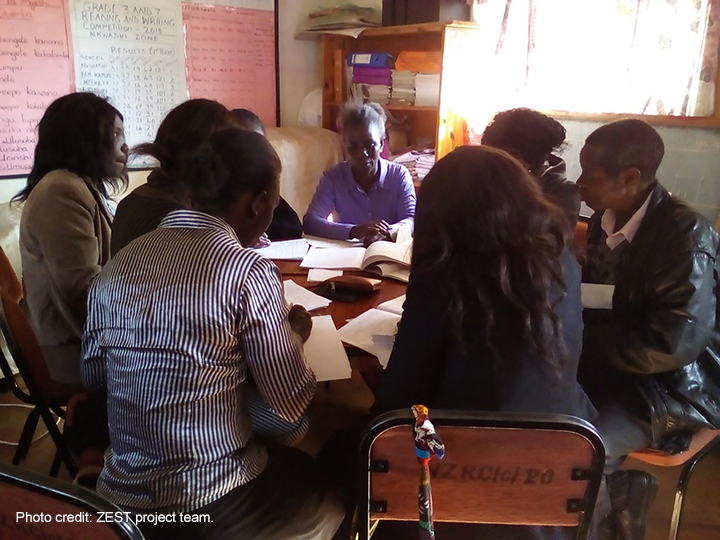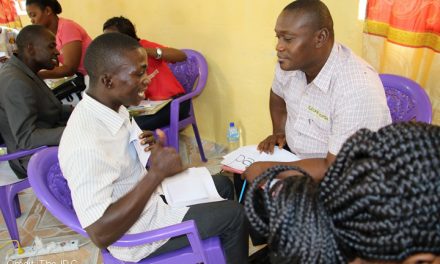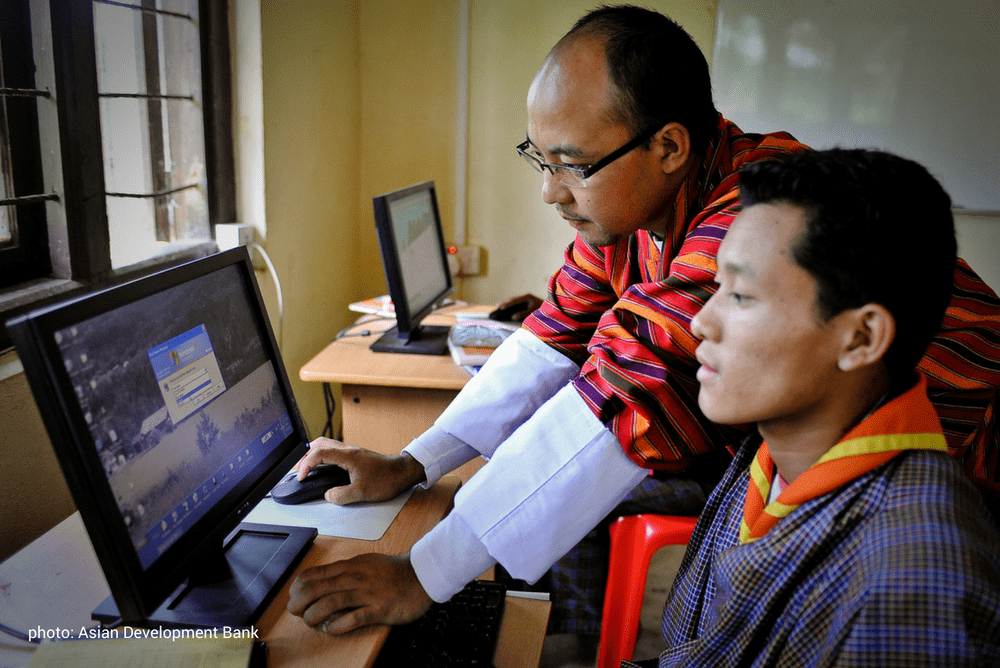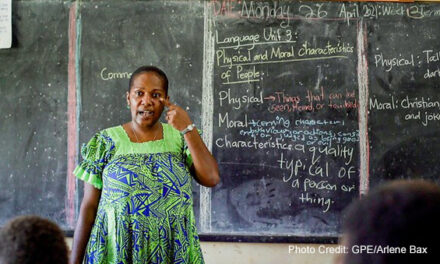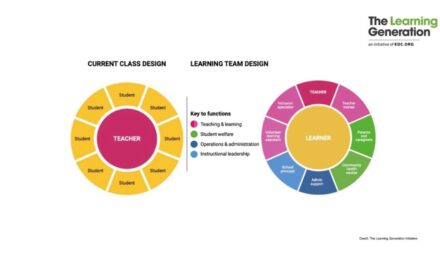This blog was written by Dr Kris Stutchbury (The Open University, Centre for the Study of Global Development), with Clare Woodward, Olivier Biard and Lore Gallastegi.
There is welcome interest in the issue of ‘implementation’ in the context of international educational development, as exemplified by Maria Brindlmayer’s blog What is implementation research and why is it useful in international education?. She and the Building Evidence in Education (BE2) team challenge the notion of a rigid theory of change, suggesting that ongoing research during the implementation of an intervention – that continually examines stakeholders’ perspectives, the context, the intervention itself and how they fit together in practice – can yield insights that will improve the likelihood of meeting the overall objectives of the intervention.
They do this by introducing ‘implementation research’ – the scientific inquiry into questions concerning implementation—the act of carrying an intention into effect, be it policies, programmes, or individual practices (collectively called interventions). Implementation research recognises the importance of context and is ongoing and therefore separate from the sort of evaluation that takes place at the end of a project. But it is only one aspect of ‘implementation’.
At the Open University (UK), we have been researching ‘implementation’ for a number of years, drawing on ‘normalisation process theory’ to plan for implementation and to understand what has worked and why. Normalisation process theory – developed in the context of healthcare by Professor Carl May and his colleagues – identifies four concepts which underpin the successful implementation of new practices:
- Coherence
- Cognitive participation
- Collective action
- Reflexive Monitoring
These concepts make sense. As a practitioner you can carry them in your head and, consequently, they can guide thinking at all stages of a project.
We have been using and exploring the meaning of these concepts in the implementation of Teacher Education in Sub-Saharan Africa (TESSA) and Zambian Education School-based Training (ZEST). ZEST was brought in to enhance the current system for Teacher Professional Development (TPD) and has reached over 4,000 teachers in 450 schools.
TPD is taken very seriously in Zambia: Lesson Study (originating in Japan) is deeply embedded, with regular teacher group meetings and ‘demonstration lessons’ aimed at developing a particular area of teaching practice. Lesson Study however has not yielded the sustainable benefits originally anticipated, particularly at primary level. Some headteachers have reported that it can have a detrimental impact on relationships in school as those volunteering for the demonstration lesson may receive criticism from their peers. Furthermore, the demonstration lesson can be difficult to organise without impacting on children’s learning and frequently lacks authenticity.
Lesson Study lacks a degree of coherence, creating practical difficulties for teachers; it is based on a particular set of cultural beliefs (Japanese) which makes ‘cognitive participation’ challenging, and the ‘collective action’ requires resources that bring ideas for new practices. The ZEST programme aims to address these issues.
Coherence
Coherence considers the new, desired practices alongside existing practice, so the extent and nature of change required is clear from the outset and is introduced in a way which is contextually relevant. In ZEST, ‘coherence’ was achieved by developing the roles, structures and ways of working that are in place. Attention was paid to the tacit, underlying beliefs and attitudes which drive current practice.
Cognitive participation
Cognitive participation makes explicit the thinking behind the new desired practices and explains this to those from whom new practice is sought. Cognitive participation involves intellectual ‘buy in’ and understanding. It is important because teachers are more likely to be willing to change their practice sustainably if they agree that it is a good idea. In introducing ZEST, the requirements of the new curriculum (to be more learner-centred) were made explicit and explored in context. Tacit beliefs – that learners are ‘empty vessels’ waiting to be filled up, or that intelligence is fixed at birth – were gently challenged.
Collective action
Collective action considers what it is that practitioners will do together to establish new ways of working in their context. In educational development projects this usually involves collaboration, practising new approaches and reflection and discussion. In ZEST, we used the opportunity presented by the requirement for regular teacher group meetings, and provided resources and training for facilitators that has had the effect of making the meetings more purposeful.
Reflexive monitoring
Reflexive monitoring involves the continuous monitoring of the intervention, ensuring coherence, and the meaningfulness of the new practices in the context. This is perhaps what the BE2 team call ‘implementation research’. Through reflexive monitoring, we continually reviewed decisions we had made and changed direction to have more impact.
In our work, we have found that for some teachers and educators, cognitive participation precedes collective action – they immediately recognise and subscribe to the values and beliefs that underpin the proposed intervention and enthusiastically embrace the prospect of collective action to make change happen. For others, the intellectual buy-in which will lead to a sustainable change develops gradually as teachers and educators take part in collective action and observe new responses from their learners. As teachers organise short pair-work activities, deliberately move around the room, or ask open rather than closed questions, they notice their learners more. They realise that those whom they thought of as ‘slow’ are just quiet, and they become more aware of the knowledge and experiences that children already have. Over time, this leads to new attitudes and beliefs about learners, and more awareness of their needs.
We suggest that ‘doing implementation’ involves applying this sort of contextual and reflective thinking to the planning as well as the doing. It involves asking the following questions:
|
The work from the BE2 team helpfully expands the final question to deliberately take account of the stakeholders, the context and the intervention and to consider how they fit together.
One of the arguments for implementation research (or reflexive monitoring) and the other concepts is that they encourage holistic thinking about the context. As people in different roles take action, there are often unintended consequences for others elsewhere in the system. By paying attention to coherence, cognitive participation and collective action, these are more likely to be anticipated. But if they are not, implementation research identifies problems while it is still possible to act.
There is considerable potential for further research to continue to interpret and understand ‘coherence, ‘cognitive participation’ and ‘collective action’ in the field of Educational Development as they can contribute to ensuring sustainability. We would welcome dialogue and discussion with implementers to help us develop these ideas! Please do contact the authors: Kris Stutchbury or Olivier Biard.

